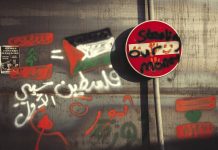Nigeria and Morocco cooperation over pipeline proposition to transport gas along the coast of Atlantic to North Africa have come to an agreement.
President Muhammadu Buhari and King Mohammed VI administered the signing event which took place on Sunday in Rabat. The agreement laid out the details of the way ahead for the “mega-project” which received its initial agreement in 2016.
Both the countries want to a pipeline extension to Morocco while the existent line “has been pumping gas from resource-rich southern Nigeria to Benin, Togo and Ghana since 2010”. According to a statement: “For economic, political, legal and security reasons, the choice was made for a combined onshore/offshore route”.
Furthermore, the statement also informed that the pipeline extension proposition comes with several building phases and it “will measure some 5,660 kilometres (3,500 miles)”. Moreover, the said extension will “respond to the growing needs of the transit countries and Europe over the next 25 years”.
The following endeavour is to reach out to neighbouring countries and them to the European customers for initiating talks with “international lender” in order to receive finding for the project. The plans of laying pipeline from Nigeria’s “vast gas resources” to North of Africa have long remained under dispute.
In fact, in the year of 2002, Algeria and Nigeria were conducting similar talks of laying pipelines that would cut across the “Sahel region”. However, finally the government of Algeria could not “finance the project”. Nigeria is a major exporter of oil, while it harbours a huge resource reserve which is still untapped, whereby proving the largest ones in Africa as well as the “seventh largest” on a global basis.
Over the past couple of years, Morocco has been on a “diplomatic offensive” to strengthen its “influence” in the African continent, whereby it rejoined the “African Union in 2017” and also deepening its connections with “English-speaking countries”.











